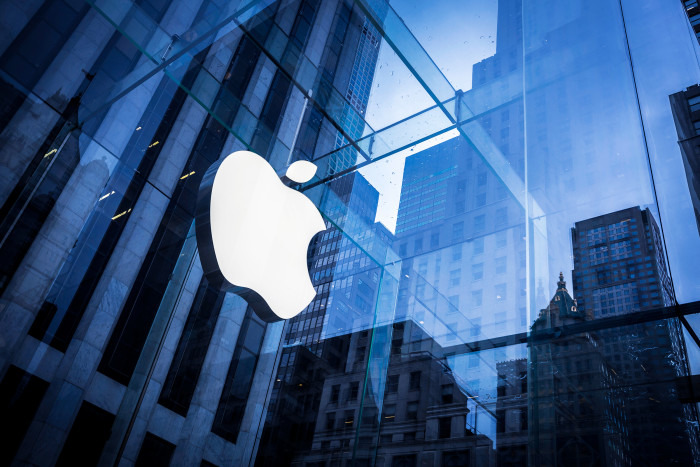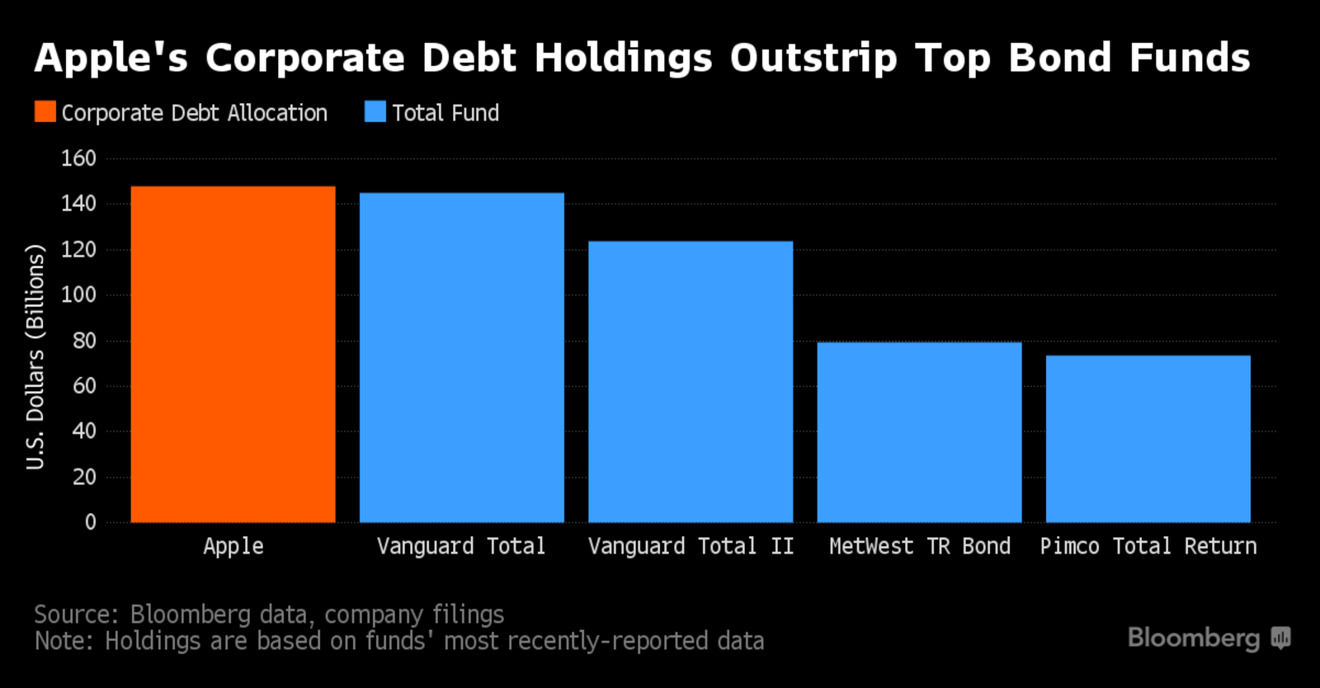In a filing with the U.S. Securities and Exchange Commission, Apple is readying yet another bond sale, and has essentially purchased an equivalent value in corporate debt to equal the world's largest mutual fund.
The filing is redacted, and is a prospectus filed pursuant to federal regulations before the details are finalized. The filing indicates that the due dates will be spread over six periods with two floating rate notes due in 2020 and 2022, and four fixed rate due in 2020, 2022, 2024, and 2027.
Joint managers continue to be Goldman Sachs & Co, J.P. Morgan, and Wells Fargo Securities. Amounts will be clarified in future updates to the document.
Apple uses the sales to support further share buyback programs, and dividend offerings.
Additionally, Bloomberg has noted that Apple's debt purchases have outstripped the world's largest bond funds. Not even including the latest sale, the last round of bond sales, Apple blew past Vanguard Total, and more than doubles the MetWest TR Bond.
During Apple's quarterly financial disclosures on Tuesday, Apple simultaneously announced plans to extend its capital return program by $50 billion and for another full year. Given the expansion, the stock buybacks should reach the $300 billion mark by March 2019.
The expansion a raised ceiling on stock buybacks, pushed from $175 billion in Q2 2016 to $210 billion for the current quarter. Quarterly dividends were increased to 10.5 percent, and a payout of $0.63 per share will be delivered on May 18 to people owning shares by the end of the trading day on May 15.
 Mike Wuerthele
Mike Wuerthele








-m.jpg)






 Charles Martin
Charles Martin

 Malcolm Owen
Malcolm Owen
 William Gallagher
William Gallagher

 Christine McKee
Christine McKee
 Wesley Hilliard
Wesley Hilliard









7 Comments
That's what Apple does with their "overseas cash".... they buy corporate debt. So no it's not simply parked in some Irish bank as many of us would presume based on the stories we read. Instead it's safely invested right here in the US via Braeburn, an Apple subsidiary, and using accounts in New York banks.
So in a way their foreign cash has already been repatriated, but with strict IRS limits on what Apple (and other big companies who do much the same) can invest in and still avoid paying corporate taxes on the money. Technically it's still considered "overseas" even tho it's really right here and earning money thru investment activity.
Getting tax credits for the expense of bonds they're selling to enable stock repurchases is gravy.
Apple is issuing corporate debt that they have to pay back to buyers.